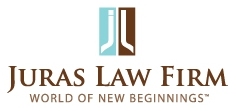New proposed H-1B “wage-based” selection process
The Department of Homeland Security (DHS) proposes to
change the process of selecting H-1B registrations for filing of H-1B cap-subject petitions from a random lottery selection to a wage-level-based selection process.
If more registrations were received during the annual
initial registration period than necessary to reach the
cap, USCIS would rank and select the registrations received generally on the basis of the highest OES wage level in the area of intended employment, beginning with OES wage level IV and proceeding in descending order with OES wage levels III, II, and I
These proposed changes would incentivize petitioners to offer higher wages
to H-1B workers or petition for positions requiring higher skills By changing the selection process, DHS would increase the chance
of selection for registrations or petitions seeking to employ beneficiaries at wages that would equal or exceed the level IV or level III prevailing wage. The DHS data shows that only 28.53% of H-1B petitions received in FYs 2018 and 2019 were filed for level IV and III wages.
The 30-day comments period starts on November 2, 2020.
Please note that this article does not constitute a legal advice. We simplified the law to outline the proposed changes to H-1B selection process. If you would like to obtain an H-1B status, call our experienced H-1B attorney at 480-425-2009 or schedule your consultation online.
